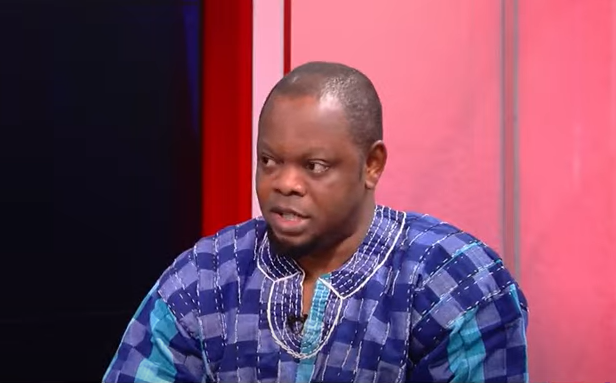Deputy Attorney General Justice Srem Sai has rebuked the Ghana Bar Association (GBA), arguing that its recent resolution calling for the reinstatement of the Chief Justice and a reversal of the Acting Chief Justice’s directives has no legal weight in the face of binding Supreme Court decisions.
Speaking on Joy News’ PM Express on Tuesday, April 29, he said the Bar had overstepped its legal limits.
“Law is not democracy,” he stated.
“So that when 10,000 people say this is the law, this is the meaning of the law, and one person says this is not the meaning of the law, then the 10,000 will win. It doesn’t work that way.”
He questioned the legitimacy and wisdom of the Bar’s resolution, passed by what he described as “45 people,” being used to speak for an entire association of over 5,000 lawyers.
“Someone might have prompted though that the resolution of 45 people, which is going to be attributed to an association of over 5,000 people, should be carefully thought out before it is even painted on the letterhead of the GBA,” he stated.
Justice Srem Sai’s comments come amid rising tensions in the legal community following the Chief Justice’s suspension and growing concern over perceived inconsistencies in the GBA’s public posture.
To him, the most troubling part of the Bar’s position is that it attempts to override existing judicial precedent.
“There is already a decision on this matter,” he said.
“So to pass a resolution on something which the Supreme Court has already decided and expect that the resolution should take precedence over the binding constitution is one thing that I cannot imagine will happen in an assembly of lawyers.”
He added that the law must be based on careful reasoning, not popular opinion.
“Law is backed by legal reasoning, paying attention to legal precedence, reading text and reading them in the light of decided cases,” he said.
The Deputy Attorney General also took issue with the GBA’s demand that the President publish details of a prima facie determination involving the Chief Justice.
He insisted such a call directly violates the Constitution and long-standing judicial pronouncements.
“One point in the resolution says that the President should go ahead and publish the prima facie decision,” he said, “when we all know that the Constitution commands that the process should not be done in public.”
He pointed to at least three separate court decisions that affirm the confidentiality of such proceedings.
“Not the petition, not the conversation around it, not the content of the petition, not the process and what happened in the proceedings should be made public,” he emphasised.
“So if, in the light of this strong constitutional injunction supported by well-decided cases, the GBA, an assembly of lawyers, can actually pass a resolution or call on the President to ask him to make what the Constitution requires to be private, public, then there’s a problem with that.”
ALSO READ:

